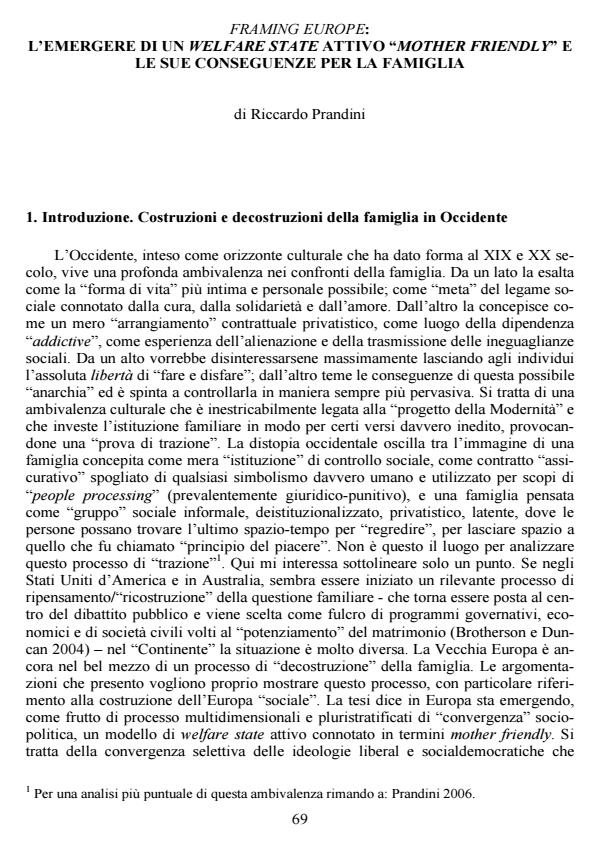Framing Europe: l'emergere di un welfare state attivo mother friendly e le sue conseguenze per la famiglia
Journal title SOCIOLOGIA E POLITICHE SOCIALI
Author/s Riccardo Prandini
Publishing Year 2006 Issue 2006/1
Language Italian Pages 40 P. File size 215 KB
DOI
DOI is like a bar code for intellectual property: to have more infomation
click here
Below, you can see the article first page
If you want to buy this article in PDF format, you can do it, following the instructions to buy download credits

FrancoAngeli is member of Publishers International Linking Association, Inc (PILA), a not-for-profit association which run the CrossRef service enabling links to and from online scholarly content.
This essay explores the recent efforts to shape “social Europe” into a frame that is functional to economic development and social cohesion. Current processes are analyzed, with the aim of understanding whether Europe is marching toward a unified model of social policy or only a loose convergence among welfare programs. A process of convergence is identified that tends to establish an “active” european welfare state mainly targeted at supporting women-mothers and their children. This “mother-friendly” model has the goal to maximize resources for the European economic development. However, it results in making family invisible, thereby fueling the very problems it wants to solve. The welfare state is supposed to “defamilise” society. As a result of this, such ambivalent and contradictory processes arise as selective inclusion through employment, workfare creation, individualization and contractualization of social ties, homologation and a social disciplinary effect. The paradoxical result is to engender those very problems the European welfare system is supposed to be solving, and to stick family into latency, although to Europeans it remains the source of social ties.
Riccardo Prandini, Framing Europe: l'emergere di un welfare state attivo mother friendly e le sue conseguenze per la famiglia in "SOCIOLOGIA E POLITICHE SOCIALI" 1/2006, pp , DOI: